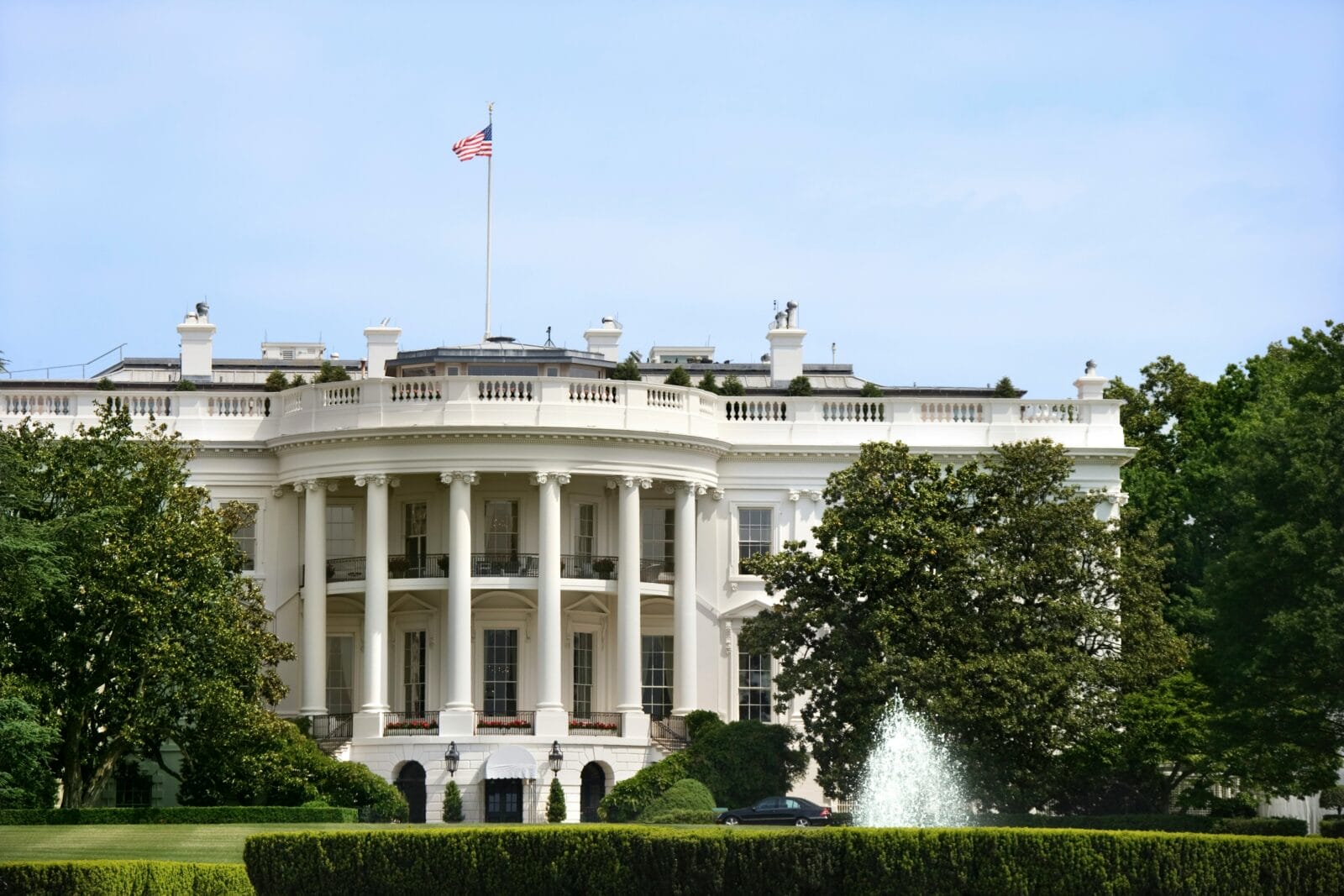Donald Trump has now won the US election and will become the 47th President in January 2025 – the oldest person to do so in US history.
As well as winning the presidential election, the Republicans have retaken the Senate although the position for the House of Representatives is not yet clear. The strong possibility of a Republican ‘clean sweep’ remains.
However, the extent of Trump’s victory will have surprised many, given that polls were showing that it was neck-and-neck in the run up to yesterday’s election. But what will a second Trump presidency mean for the markets? What about the global economy? Investment strategists and wealth managers have been sharing their reaction to today’s early morning news as follows:
Commenting on what it means for markets and the economy, Lindsay James, investment strategist at Quilter Investors, said:
“Following weeks and months of polls showing the US election to be on a knife edge, Donald Trump appears to be romping to victory, with each of the swing states projected to fall his way. With control of the Senate too looking as if it will shift to the Republicans, there will be a sea change in the political and economic handling of the largest economy in the world. The House still hangs in the balance, but likely to reflect the popular vote, and the chances of a red sweep are increasing.
“That said, the economic impact of this new Trump presidency is likely to be volatile. While he, and others that surround him such as Elon Musk, want to cut the size of the state, public spending is likely to remain very high and taxes kept low. Many of his measures will be inflationary and likely to lead to a rise in bond yields, putting pressure on the Federal Reserve in its quest to bring interest rates down.
“Investors have already responded to the news that Trump will regain power. Bond yields are up and the dollar has risen too as a result. Widespread tariffs will now likely be implemented, choking global trade in the meantime, while the deficit is likely to grow ever larger, at a time when markets are getting a little nervous about the sheer scale of spending. While the economy was perhaps the defining feature of this election for voters, an emboldened Trump presidency is likely to add fuel to the fire.
“While over the long-term US elections have had a minimal impact on stock markets, investors will likely see a Trump presidency as a positive for the share prices of many of America’s companies. With proposals for business tax cuts paired with steep tariffs on imports, US corporate profitability is projected to improve, although tariffs will elicit an international response and far-reaching consequences. Indeed, in our recent survey of some of the world’s largest asset managers, a Trump presidency was seen to be mildly positive for markets, compared to no change for a Kamala Harris administration – although highlighting his volatile nature, the spread of views for Trump was far greater.
“Volatility is likely to be the defining feature of this presidency. With the future of Ukraine now in the balance, and geopolitical risks seemingly increasing every day, investors will be best placed to try to block out the noise, remain invested and base their decisions on the fundamentals of corporate America, instead of the measures enacted out of the White House.”
Daniel Casali, Chief Investment Strategist at Evelyn Partners, the wealth manager, says: “The fact this election appears more of a landslide with less risk of a disputed result is positive for the markets. One of the biggest fears going into this election was a contested result and a repeat of the Capitol Hill riots of 2021. With a clear Trump victory, that concern has now eased.
“The positive market reaction is not just about a Trump victory but also the likelihood that Republicans are set to retain the House of Representatives and look likely to take the Senate and therefore control Congress. The combination of a clean sweep victory means tax cuts are likely over the coming year. That will be beneficial for equities as it means lower taxes will boost company earnings. So, the combination of a clear victory along with the impact of those tax cuts, will be beneficial for growth and the equity markets are reacting positively to that.
“Of course, much of what Trump said in the election campaign is rhetoric, designed to win over voters, so the question is what happens in reality. What we do know is that a Republican-led Trump administration stands for lower taxes, less regulation and more trade tariffs.
“The strengthening US Dollar is a result of markets already pricing in Trump’s proposal to increase trade tariffs. When trade tariffs went up in Trump One, the dollar appreciated. However, Trump could be using the threat of trade tariffs as a means to an end to get the Chinese to invest more in the US. This means the big surprise in the second Trump administration could be that he actually negotiates a trade deal with China by using this blunt instrument of threatening to raise tariffs. This could work out positively for equities though it is too early to tell for sure at this juncture. A second factor fuelling the stronger dollar is the impact of a Trump win on growth: if growth is expected to be stronger it might mean the Federal Reserve is less likely to cut interest rates as aggressively and may not be as dovish.
“Of course, Trump’s pledge to lower taxes, funded by tariffs on all imports, may be good for equity markets right now, but what his policies also entail is more debt. Tariffs have the potential to be inflationary, as they will probably add to consumer end-prices, which subsequently might impact consumer confidence and economic activity. While cutting Corporation Tax, for example, would be positive for US equities, it could also lead to higher government debt which may impact the bond markets on concerns over burgeoning debt. We don’t know at what point this debt might become unfinanceable but for the moment the equity markets like what they are seeing. While the bond market might not, bond yields aren’t yet moving significantly higher.”
Nazmeera Moola, Chief Sustainability Officer, Ninety One comments: “The Republican victory is likely to see the US retreat from all global climate initiatives – much like we saw in the first Trump presidency. This is likely to slow momentum to combat climate change unless other parts of the world step up and fill the gap. We do think that countries like China and India will continue to focus on energy transition related investments – as these investments have been driven by their positive financial benefits and impact on growth to date. While a red sweep is net negative for climate considerations, we do not expect a blanket repeal of all elements of the Inflation Reduction Act. Large portions of the IRA are increasingly being defended by republicans – whose districts benefit from the investment. However, if elements like the green hydrogen credits are retained, we are likely to see amendments in the manner in which they are implemented that would result in more questionable climate outcomes. The republican victory opens the door for tax credits for EVs to be rescinded. However, the proposed tariffs will provide some insulation from US EV producers from cheaper Chinese competitors. Other considerations include the impact of the prospective tariff hikes on the cost of new renewable projects in the US and the likely expansion of oil and gas exploration on federal lands as environmental regulation is rolled back.”
Thys Louw, Emerging Market Fixed Income Portfolio Manager, Ninety One said: “With Donald Trump prevailing in the US election and a Republican clean sweep appearing highly likely, the focus will now shift to policy priorities under a second Trump administration. The initial market reaction reveals the expected policy mix to comprise more expansionary US fiscal policy, reduced government regulation, a change in geopolitical stance, and increasingly aggressive trade policy towards global manufacturing centres such as Europe and Asia. This has reflected in the market trading with a reflationary/risk-on tone in US assets (higher treasury yields, stronger equity futures and stronger dollar) while currencies such as the euro and Mexican peso have been the main underperformers as they are likely to find themselves in the crosshairs of trade policy.”
“Within emerging markets, despite a stronger dollar and higher treasury yields, we note that the reaction has not been as broadly negative as feared, for instance, high-yield credit markets have largely performed well given expectations of stronger risk markets, while sovereign debt markets such as Ukraine are rallying on the expectation of expedited peace negotiations under a Trump administration. Looking ahead, several key events over the next few days could help shape the short-term outlook for emerging markets in the face of trade and tariff uncertainty, namely the Chinese National People’s Congress (NPC) meeting, which will give guidance on the size of Chinese fiscal support; the November US Federal Reserve meeting; and finally a 30-year US treasury auction, which will be important in providing an anchor for longer dated treasury rates.”
Garry White, Chief Investment Commentator at Charles Stanley comments: “Trump will be very powerful with a clean sweep. He will want to accelerate growth, promote US business, boost real incomes and jobs. He will regard the domestic economic imperative as more important than foreign policy. Musk giving him support may abate Republican antipathy to electric cars, but there will still be a major shift in government attitudes to net zero.There will be fewer bans and subsidies to promote green investments and more licences for fossil fuel. Markets will see a second Trump term as good for shares including smaller domestic companies, with net earnings boosted by lower taxes. Bond markets are concerned about a bit more inflation and continuing large deficits.
“A Trump Presidency is bad news for China and for Europe, facing tariff threats and a US policy based on cheaper energy, lower taxes and regulations to drive more US activity.
“A second Trump Presidency would probably see him working at speed to do and achieve more, as he moves on from the frustrations and attacks of the last 4 years. He is likely to want to extend and improve the tax cuts he brought in last time, and want to use fiscal and monetary policy to promote faster growth, even if that means a bit more inflation. He sees tariffs as a useful source of additional revenue, and will cut back on green subsidies. Trump would back further expansion of US energy production including oil and gas, while he also pledges to cancel the electric vehicle mandate and to take tough action against gang and drug crime. He would boost military spending, including the installation of an iron dome style defence for the whole country.
“He has threatened heavy tariffs against China and a general tariff against others. This may be a bargaining position. Whilst the Democrats attack Trump’s tariff plans as inflationary, they have kept quite a few of the Trump tariffs from last time and imposed a 100% tariff on Chinese electric cars. President Trump would mean more tariffs and more talk of trade wars.“
Luke Bartholomew, Deputy Chief Economist, abrdn, said:
“With the results of the Presidential race becoming clear fairly early on, the market implied expected volatility over coming days has collapsed.
“More generally, financial markets are behaving in a manner consistent with a red wave. The dollar is stronger, treasury yields are higher, US stock futures are up, and oil is lower.
“This implies the market is focusing on the reflationary aspects of Trump’s policies, with the prospect of tax cuts (and the avoidance of parts of Harris’ agenda) boosting risk sentiment.
“However, as different aspects of his agenda move into focus over time, this reaction may evolve – especially given the prospects for higher tariffs, and the size of potential fiscal stimulus in an already full-employment economy.
“Indeed, the latest survey data show the US economy remains solid. The services ISM index jumped to a near 18-month high of 56 in October and the employment component was particularly strong. The ISM survey now aligns quite closely with the services PMI, even as both the ISM and PMI manufacturing surveys are still weak.”
Mark Hawtin, Head of the Liontrust Global Equities team said: “The outcome of the US election was more decisive than many perhaps expected with Trump securing a clear victory of 279 votes to become the next president. Following the result the dollar soared, with expectations of stronger US economic growth, while US and UK equities rose and Bitcoin hit an all-time high. Trump has made tariffs a central part of his promise – if enacted these will hurt non-US companies exporting to the US. Chinese car companies are the most obvious target. China’s Hang Seng index closed -2.23% down on Wednesday.
“We expect that, depending on the eventual size of victory, other areas for focus for Trump will be the rolling back of regulation, tax cuts and the impact on the deficit. This is likely to be positive news for the industrials and financial sectors, as well as energy, while crypto currencies should also benefit.
“However, overall, for the Liontrust Global Equities team, the outcome of the election, while having clear short-term differences to market perception, will not change the driving concern mounting for US investors that the level of national debt and the interest burden is becoming unsustainable. With Trump spending plans ranging between $8 – 10 trillion, this could have significant further impacts on the economy and debt levels.”
Blair Couper, Investment Director at abrdn, said: “Over the longer term, a Trump victory is likely to mean a more lax regulatory environment, escalating trade tariffs and potential attempts to repeal components of the Inflation Reduction Act (IRA). Markets had already been pricing in the likelihood of a Trump victory, however it is looking likely that the Republicans will take a sweep of Congress which will make it easier for the party to enact their policy agenda.
“Under this scenario, we believe those areas that could come under pressure are companies more likely to be subject to tariff increases and areas of IRA that are easier to repeal, such as European auto manufacturers, electric vehicles, and offshore wind.
“Share prices of US companies with supply chains in China are also likely to react negatively whilst domestic manufacturing and US small and mid-cap companies are likely to outperform. With President Trump at the helm, America also faces elevated inflation risks from these policies so we’re likely to see rate sensitive sectors react and the dollar strengthen.
“Areas like financials (i.e. banks) could perform well as rates stay higher for longer. Whilst areas like real estate and growth equities would likely be negatively impacted by higher duration, it is likely that this would be offset by the positive view for markets overall from his policies so we have yet to see whether these sectors would be negatively impacted or not.”
Aaron Rock, Head of Nominal Rates at abrdn, said; “Markets can take solace from a swift resolution of the US electoral process. With fears of contested counts seemingly allayed, repricing of ‘Trump trades’ has been orderly.
“The next challenge is how to trade rhetoric versus policy. Trump’s first term gave a mixed picture in this regard. We expect tax cuts to consumers and business in short order, a key plank of Trump’s populist-leaning outlook. Tariffs may be ratcheted up over the time, for now a threat rather than a reality. Either way, it appears very likely that yet more fiscal expansion is on the way. This does not play well with Trump’s wish to have the Fed cut rates aggressively.
“From here, we expect US Treasury yields to drift higher, versus peers, led by longer maturities.”
Daniele Antonucci, Chief Investment Officer at Quintet Private Bank (parent of Brown Shipley) said: “As we write, financial markets continue to react to the news. Asian stocks are softening, while the S&P 500 futures (financial instruments that could anticipate the equity market reaction once the US opens) gained and are now close to their all-time high. We have a slight tactical equity overweight, which we combine with a preference for short-dated government bonds and high-quality corporate bonds, while we’re typically underweight risky bonds.
“We think a Trump lead could signal gains in oil & gas, financial and telecom stocks, as deregulation would benefit these sectors. It might also – at least at first – be positive for US equities more generally, given a sizeable fiscal boost and, therefore, faster US economic growth, which could support the industrials and materials sectors. The impact on technology firms is likely to be more nuanced, with some uncertainty on possible antitrust actions but also tax cuts potentially boosting capital expenditure, possibly a net positive.
“Tariff increases would negatively impact emerging markets, which is one of the reasons why, tactically, we currently don’t have active positions in those regions. If applied to NATO allies, tariffs may impact Europe too, and if they were to result in higher US inflation, the US consumer sector might be negatively affected.
“As higher US fiscal deficits look likely, 10-year US Treasury yields jumped by 14 basis points to 4.41%. We’ve so far stayed underweight US Treasuries on concerns that a large fiscal stimulus might result in a significant supply of government bonds (a wider budget deficit leading to higher government debt), lowering their price.
“We also hold gold, commodities and high-quality government bonds in our long term, strategic asset allocation, as we think they can cushion a variety of geopolitical and economic risks, and a hypothetical rise in uncertainty. We also hold ‘insurance’ instruments for the US and Europe (where client knowledge and experience, and regulations and investment guidelines, permit), which can appreciate when equity markets decline. Conversely, if we were to detect lower uncertainty ahead, or a more positive path for, say, US equities, we might consider selling those instruments.
“In terms of currencies, recent dynamics have been mixed. This morning, the US dollar strengthened further against the euro to 1.076, the lowest since July. We’ve already seen a stronger dollar recently, in part because the European Central Bank has reduced interest rates more than the US Federal Reserve (Fed). Conversely, the pound sterling hasn’t weakened that much relative to the dollar, only depreciating slightly in recent weeks. This is because the Bank of England (BoE) has so far refrained from cutting rates as swiftly as other central banks. This Thursday, we expect both the Fed and the BoE to lower their key policy rates by a quarter-percent.
Cesar Perez Ruiz, Chief Investment Officer, Pictet Wealth Management said: “Although market volatility may increase in the short term, investors are encouraged to adopt a long-term perspective, positioning their portfolios to capitalize on potentially significant market reactions.
“This election outcome is seen as supportive of US equities relative to global markets, with sectors such as financials and cash-rich companies likely to benefit.
“An “America First Reflation” scenario could elevate inflation expectations and prompt a less accommodative Federal Reserve. Markets anticipate an upward adjustment in inflation and term premiums due to tariff impacts and a larger deficit, which would drive higher long-term interest rates.
“Stronger US economic performance and rising interest rates should boost the US dollar. Additionally, safe-haven assets like gold and the Swiss franc are expected to perform well amid heightened uncertainties and potential geopolitical tensions.“
Ben Lofthouse, Portfolio Manager of Henderson International Income Trust, said: “The equity market is responding positively to the fact that the US election looks like it has a clear winner, and that winner is Donald Trump. US interest rates have been rising over the last week, and have continued to rise today, so the election outcome is considered to be potentially inflationary and therefore negative for fixed income markets.
“People had expected that the outcome would be closer than it looks and were expecting potential disruption. An uncontested win is itself positive for sentiment.
“Whilst the win brings uncertainty for companies in terms of potential tariffs, there has been a general move towards moving manufacturing either closer to or into the US, and a Trump presidency is likely to accelerate that. Mr Trump has campaigned on a mandate that includes further tax cuts for US companies, and less government regulation, which are generally taken positively by investors, and as a result US domestic companies are expected to be beneficiaries. Many US companies we have met this year have attributed lower levels of activity due to caution before the election, so there could be an acceleration of activity in the US post the election.
“It is hard to say what the impact on global markets and inflation will be yet as many of the potential tariff increases are considered by many to be negotiation positions to extract better terms of trade, so may not come to pass, but this will not be known for some time. With regards to inflation globally, if Mr Trump does encourage more oil production in the US (‘drill baby drill’ is one of his mantras) and does succeed in bringing the Ukraine conflict to a close, several commodity markets could see improved supply (fertilizers, wood, oil, gas) which would be positive for many economies. The market is not talking about this because these would be longer term effects of his presidency. In terms of China the impact is unclear until we hear more from their own stimulus plans on Friday.”
Nick Wood, head of fund research, Quilter Cheviot comments: “Small and mid-cap stocks in the US are currently undervalued compared to mega caps. Pre-market indicators suggest that small caps are set to open much stronger than large caps, likely benefiting from Trump’s focus on domestic companies. My preference is for the Artemis US Smaller Companies fund, which has a strong long-term track record due to excellent stock selection and a focus on top-down factors.”
Daniela Sabin Hathorn, senior market analyst at Capital.com said: “As Trump 2.0 seems like a done deal markets have switched back on the “Trump trade” with the dollar and US yields moving sharply higher. The key idea behind this is that his second term in office will drive up inflation, causing the Federal Reserve to change the course of its monetary policy.
“The US 10-year yield has risen 20 basis points throughout the Asian session as the results trickled in and started to point towards a possible Trump victory. This is the biggest daily gain in over two years. The bond market is going to be key over the coming days as it will give insight into how much bond traders are willing to push back on Trump’s suggested policies. If the Republicans are also confirmed to have taken victory in the House of Representatives – which is vital for tax policy – then we could see further volatility in bonds. His tax policies and tariff proposals are the key concern for bond markets, so we’ll have to see how much further pushback bond traders offer in the coming days. A key target for the US 10-year yield will be the 4.5% mark, followed by 5%.
“Markets seem to have accepted that another Trump term would mean a supportive and expansionary fiscal policy, which could positively impact growth in the US. This is evident in the bullish reaction in equities, especially those largely influenced by the domestic economy. At the time of writing, the Russell 2000, S&P 500 and Nasdaq 100 are up 4.9%, 1.7% and 1.5% respectively. The path in the short term seem to remain higher but it is important to note that these indices are at – or close to – all-time highs, meaning we could see some technical selling not too far away.
“With regards to Trump’s victory, stocks in sectors like energy, defence, financials, and manufacturing could be benefitted due to his pro-business policies, tax cuts, and deregulation. Trump’s support for fossil fuel industries could benefit oil and gas stocks, as he would likely pursue policies that favour domestic energy production and potentially roll back regulations on emissions. Conversely, the renewables sector might face downward pressure if Trump prioritizes fossil fuels over green energy and scales back clean energy incentives or environmental regulations.“
Charlotte Daughtrey, Equity Investment Specialist at Federated Hermes said: “This has been a tight race. Our belief has been that irrespective of who is in the White House in January, quality companies will continue to perform, and for clients that may have volatility concerns – having a quality bias has historically provided downside protection during volatile periods.
“Small and mid-cap companies are the economic backbone of the US economy and there are strong tailwinds that are supportive for the next 5-10years. This is supported by a significant valuation gap with US small and mid-caps relative to large-cap peers. They’re trading at a 25% discount, whereas typically they should be at a 10% premium because they are structurally higher growth. Whilst their policies do differ there is some commonality, such as onshoring, which will be a strong tailwind for this domestically focused asset class and provide a strong tailwind for sectors such as Industrials, Information Technology and Materials (where we are overweight).
“Our base case is for 150 basis points of rate cuts over the next 12-18 months, assuming no geopolitical or economic issues. However, if Trump is victorious his proposed tariffs may be reflationary that The Fed is attempting to balance the need to bring down inflation without causing a stop to the resilient US economy and so this may impact the pace of rate cuts or perhaps push them back into a rate hiking cycle, something they are keen to avoid given the impact this had on markets back in the 1970s. This would also be counter to the effect that Trump wants.”















